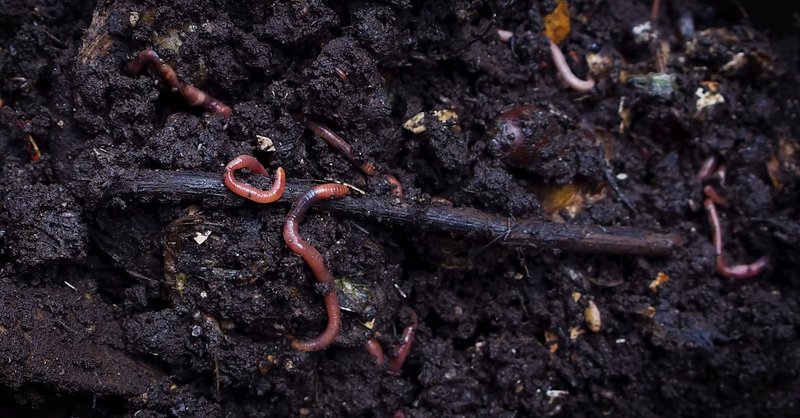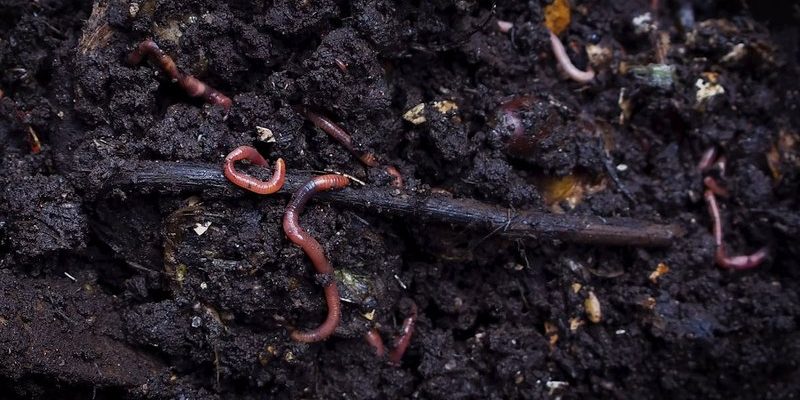
Think of pH like a scale that tells us how acidic or alkaline something is, kind of like a sweet or bitter taste in food. Just as some foods can be too sour for our taste, soil can be too acidic for earthworms. They thrive best in a certain pH range, and when the soil shifts outside of that range, their well-being can be affected. So, what happens when the soil turns sour? Let’s dig in!
Understanding Soil pH and Acidity
Soil pH measures how acidic or alkaline the soil is, ranging from 0 to 14. A pH of 7 is neutral, below 7 indicates acidity, and above 7 shows alkalinity. Earthworms prefer a pH level around 6 to 7, which is slightly acidic to neutral. When the pH drops below this range, the soil becomes more acidic, which can be problematic for our squiggly friends.
Here’s the thing: soil acidity can be affected by various factors, including rainfall, organic matter decomposition, and even fertilizer use. Rain can leach away alkaline substances, leading to increased acidity. Over time, even healthy soil can start to shift, turning well-balanced environments into more acidic ones, which can directly influence the earthworm population.
When soil becomes highly acidic, it can lead to a depletion of essential nutrients such as calcium and magnesium. This situation not only affects plant growth but also makes it tough for earthworms to survive. Imagine trying to live in a place where your favorite foods are no longer available; it’s not easy, right?
The Importance of Earthworms in Soil Health
Earthworms are often termed “ecosystem engineers” for good reason. They help break down organic matter, recycle nutrients, and improve soil structure. Their burrowing activities aerate the soil, allowing air and water to penetrate deeper layers, which benefits plant roots. When earthworms thrive, the soil is generally healthier.
But when soil acidity rises and becomes too extreme, earthworms can struggle to survive. Here’s a fun fact: when earthworms digest organic material, they produce nutrient-rich casts. These casts enhance soil fertility and structure. In turn, healthy soil helps plants grow, which benefits the entire ecosystem. So, if earthworms are having a hard time due to high acidity, it can create a ripple effect throughout the soil ecosystem, impacting everything from plant health to overall biodiversity.
Think of it like a domino effect. If one piece falls, the rest follow suit, creating chaos. That’s how significant earthworms are to maintaining soil health and structure.
How Earthworms Adapt to Soil Acidity
Earthworms aren’t just passive critters; they can adapt to varying soil conditions, including changes in acidity. Here’s how they do it: first off, some species of earthworms are more tolerant of acidic conditions than others. For example, the red wiggler worm (Eisenia fetida) tends to handle lower pH levels better compared to other species.
Additionally, these remarkable creatures can migrate through the soil to find more suitable habitats. When acidity becomes too high in one area, they might simply move to another patch of soil where conditions are more favorable. It’s like relocating to a new neighborhood if your current one isn’t cutting it anymore!
However, this migration can only go so far. If the entire garden or field becomes too acidic, earthworms have fewer options. Monitoring and adjusting soil pH can make a world of difference in helping them thrive.
The Effects of Soil Acidity on Earthworm Behavior
Soil acidity can have a profound impact on earthworm behavior. When the soil is too acidic, earthworms may become less active, which means they won’t be aerating or enriching the soil as much as they usually do. You might say they go on “pause,” significantly affecting nutrient cycling.
Sometimes, under high acidity, earthworms may even stop reproducing. This decline can lead to reduced populations over time. Picture a community losing its energy and passion due to unfavorable living conditions—sooner or later, fewer people will be around to contribute to its vibrancy.
Moreover, if they encounter extreme acidity, they can suffer from conditions such as stress or even death. If you’ve ever tried to grow plants in overly acidic soil, you know it can spell trouble. By actively managing soil pH, we can create better living conditions for earthworms, which in turn benefits our gardens and crops.
Managing Soil pH for Optimal Earthworm Health
If you’re wondering how to keep your soil healthy for earthworms, managing pH is key. Regular soil testing can help determine whether your soil is on the acidic side. You can easily buy a soil test kit at garden centers or online. Once you know your soil’s pH, it’s easier to take actionable steps.
Here are some practical tips to improve soil acidity:
- Lime Application: Adding lime to acidic soil can help raise pH. It’s like giving the soil a gentle buffer against acidity.
- Organic Matter: Incorporating compost or organic matter can naturally help balance pH and provide nutrients.
- Mulching: Using mulch not only conserves moisture but can also help in improving soil structure over time.
By maintaining a balanced pH, you not only promote earthworm health but also set the stage for flourishing plant life. You want your backyard or garden to be a vibrant ecosystem, and that starts from the ground up.
The Connection Between Soil pH and Plant Growth
You might be thinking, “How does this all connect back to my plants?” Well, here’s the thing: soil pH significantly affects nutrient availability. When soil is either too acidic or too alkaline, plants struggle to absorb essential nutrients.
For instance, many plants prefer a slightly acidic to neutral pH, just like earthworms. When these levels are off, plants may exhibit nutrient deficiencies, stunted growth, or even dieback. Imagine planting a beautiful garden only to watch it wilt away because the soil conditions weren’t right.
Keeping earthworms healthy and happy leads to healthier soil, which in turn provides your plants with the right nutrients. It’s a beautifully interconnected cycle of life.
Final Thoughts: The Role of Earthworms and Soil pH
The interaction between earthworms and soil acidity is a delicate dance that ultimately affects the health of our gardens and ecosystems. Understanding how earthworms respond to changes in pH helps us appreciate their vital role.
By taking care of our soil and its pH levels, we not only support earthworm populations but also encourage robust plant growth. Whether you’re tending to a small garden or overseeing large agricultural landscapes, every effort counts. So next time you see an earthworm, remember—it’s not just a squiggly creature; it’s a key player in keeping our soil healthy and thriving. Happy gardening!

